Transit and Parking Meet in Evanston
July 27, 2018
July 27, 2018
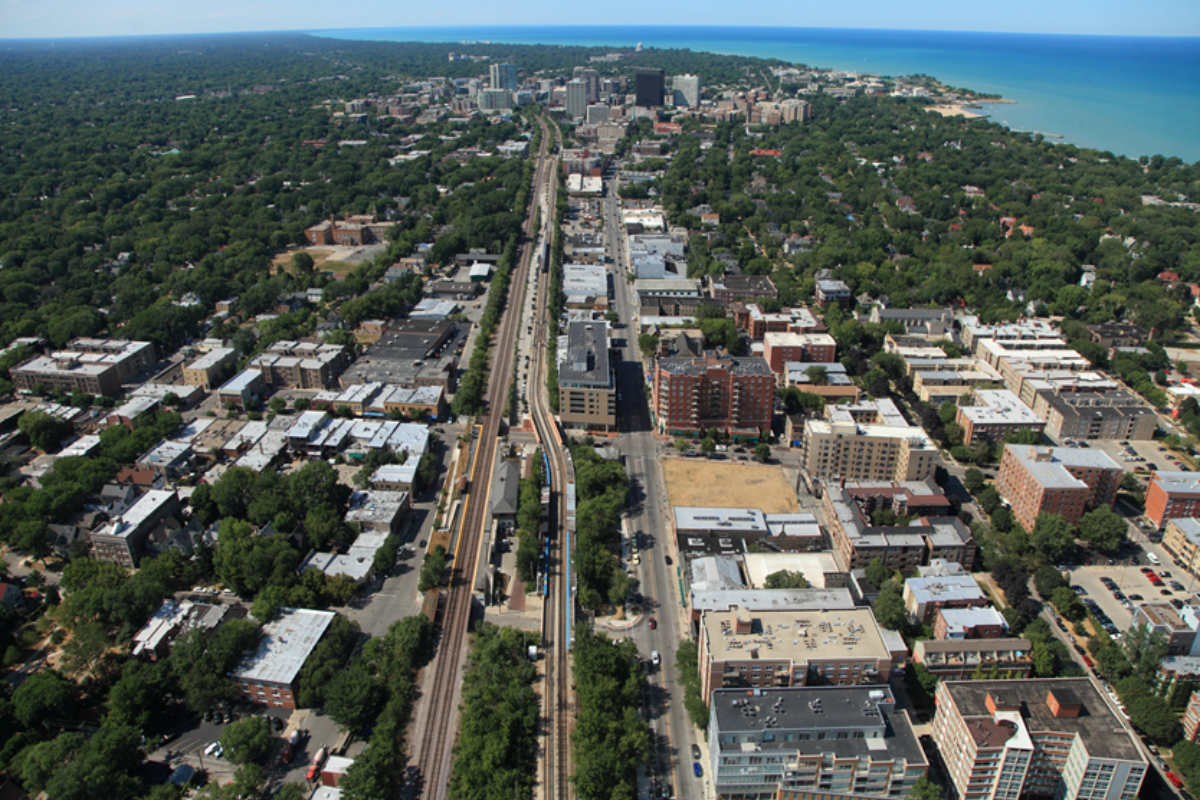
By Brian Hacker, AICP
To continue our conversation about the benefits of the RTA’s Community Planning program and celebrate its 20th anniversary, I want to talk about parking and its importance to transit-oriented development or TOD. Although it may seem counterproductive for planners to focus their attention on parking while designing pedestrian-friendly neighborhoods that promote transit ridership, determining the appropriate amount of off-street parking in transit station areas is vital to supporting TOD.
Research shows that neighborhoods with quality transit service generate significantly fewer automobile trips than those without transit access, therefore reducing the need for car-ownership and the demand for parking. An overabundance of off-street parking in a transit-served district can negatively affect the ability to implement TOD by inflating housing costs. This is due to the added cost of including parking in new developments and taking up land that could otherwise be devoted to transit-supportive uses such as housing, jobs or other amenities. However, municipal zoning laws in many communities around our region require the same levels of parking for new development projects regardless of whether they are within walking distance of frequent transit service.
Through a type of Community Planning project called a TOD zoning code update, the RTA works with local governments to assess and revise their zoning ordinances in a manner that supports TOD principles. In 2015, the RTA began a TOD zoning project with the City of Evanston that focused specifically on reducing parking requirements for their transit-served neighborhoods.
Located immediately north of Chicago on the lakefront, Evanston has a wealth of transit assets with ten rail stations, combined, on the CTA Purple Line and Metra Union Pacific North line, as well as bus service on numerous CTA and Pace routes. Despite its convenient access to transit and a lower rate of car ownership compared to its north suburban neighbors, Evanston’s previous residential parking requirements were comparable to typical suburban standards that do not take into account the availability of alternate modes of transportation.
As part of the TOD zoning project, a parking study was completed that confirmed the City’s requirements had resulted in an over-supply of parking in both public garages and private residential developments located near transit. The data showed that, despite the City zoning code calling for 1.25 to 2 parking spaces for each new unit of housing built, the peak parking demand was roughly ONE parking space per unit. Additionally, a review of peer cities revealed that Evanston’s parking requirements were the highest among the group. Based on these findings, the study recommended that the City adopt lower parking requirements based on the number of bedrooms per housing unit rather than a flat rate per unit. Although this approach is more complex than the previous requirements, it is more accurate to the actual parking demand. The study also offered other strategies for managing parking demand at new residential developments in TOD areas, such as project-specific transportation studies that examine the various options available to potential residents, giving the City a roadmap for ways to better manage its supply of off-street parking.
After several public meetings, Evanston’s City Council adopted changes to the zoning code that reduce parking requirements in September of 2017. Since that time it has been applied to three new mixed-use projects near transit stations. In one example, a planned multifamily development with 169 units on Oak Avenue near the Davis Street CTA and Metra stations, 122 parking spaces are required under the new parking regulations, compared to the 224 that the prior regulations would have called for.
Thanks to the support of the Community Planning program, the City was able to take an important step in their continuing efforts to promote an appealing transit-oriented community with diverse transportation and housing options by effectively managing its parking supply.
--
Brian joined the Regional Transportation Authority as Senior Planner in 2016. He is actively involved in transit-oriented development planning and implementation efforts throughout the RTA’s six-county service area, overseeing the Access to Transit program and managing projects for the Community Planning program. In his work, Brian is inspired by the equitable nature of public transit and believes that better access to transit is vital to improving personal mobility and quality-of-life for residents of our region. Prior to joining the RTA, he served as a planner in Metra’s Long Range Planning Department for over three years. Brian received a master’s degree in Urban Planning and Policy from the University of Illinois at Chicago and a bachelor’s degree in Humanities from the University of Michigan.
Subscribe to our Newsletter
Related Articles
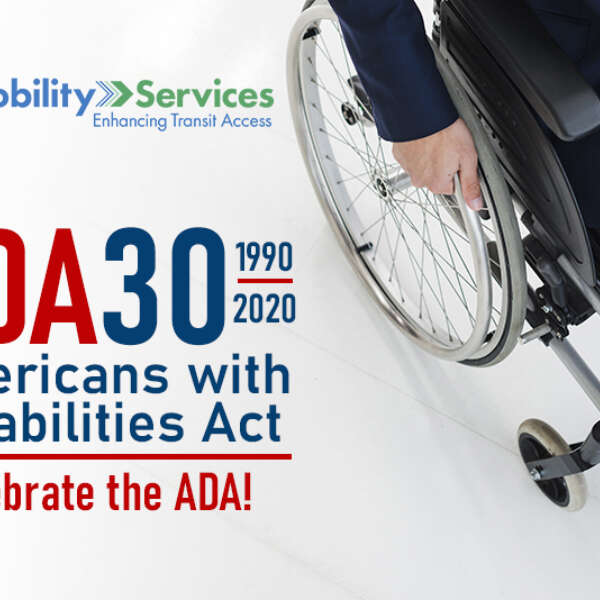 RTA celebrates 30 years of the Americans with Disabilities Act
RTA celebrates 30 years of the Americans with Disabilities Act
This month the RTA is celebrating the 30th anniversary of the Americans with Disabilities Act (ADA). The ADA transformed society and provided opportunities f...
July 29, 2020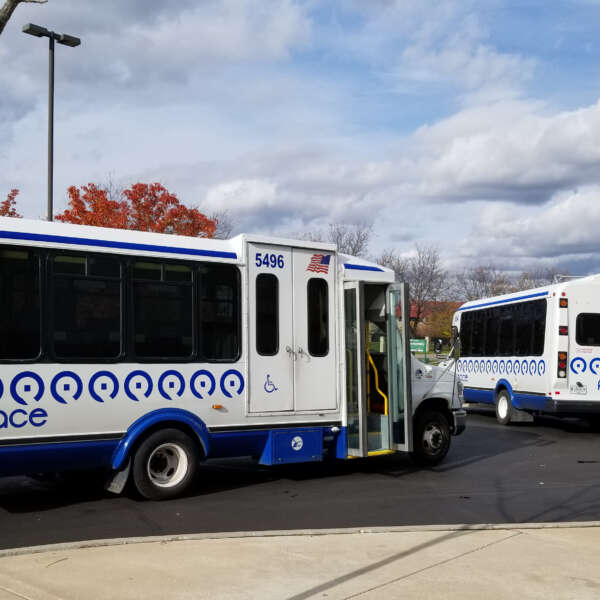 Take a survey to help improve mobility options for older adults and people with disabilities
Take a survey to help improve mobility options for older adults and people with disabilities
Do you or someone you know face transportation challenges? The Regional Transportation Authority (RTA) wants to hear from you about transportation issues and...
May 7, 2020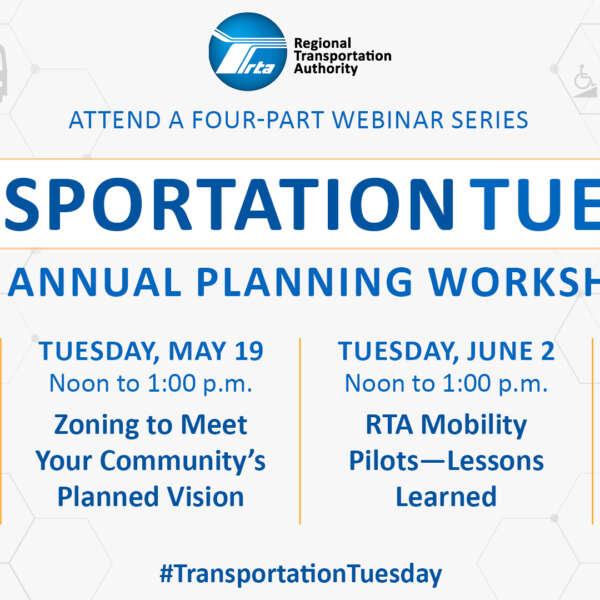 Transportation Tuesday Webinar Series: Attend the 2020 RTA Annual Planning Workshop Virtually
Transportation Tuesday Webinar Series: Attend the 2020 RTA Annual Planning Workshop Virtually
The RTA is launching a four-part webinar series in place of the Annual Planning Workshop due to the ongoing COVID-19 pandemic. The free, virtual sessions wil...
April 17, 2020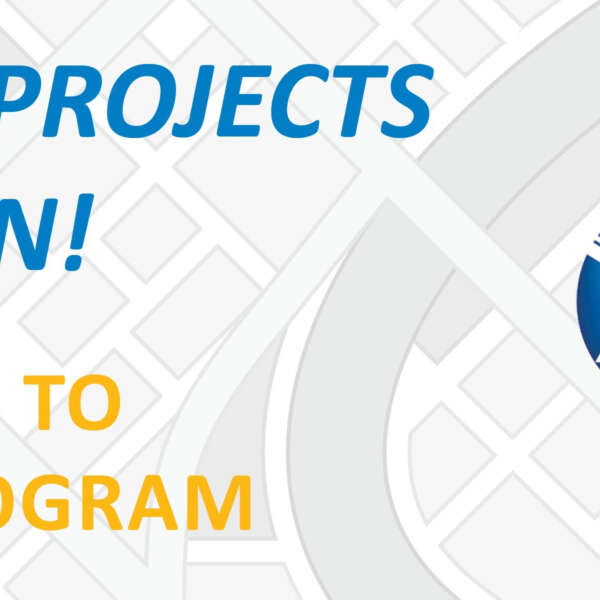 Announcing the 2020 Access to Transit Program Call for Projects for Small-Scale Capital Projects
Announcing the 2020 Access to Transit Program Call for Projects for Small-Scale Capital Projects
We are excited to announce that the call for projects for the RTA Access to Transit Program is now open. The RTA launched the Access to Transit program in 2...
March 13, 2020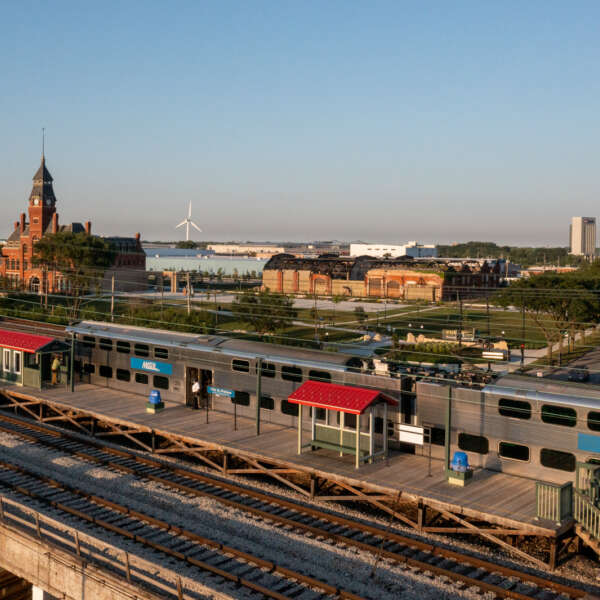 Happy International Women’s Day and Women’s History Month from the RTA
Happy International Women’s Day and Women’s History Month from the RTA
Each year the RTA celebrates Women’s History Month in March to recognize the women who work at, and ride, CTA, Metra, and Pace every day. The celebration coi...
March 8, 2020 How's Your Ride? Take This Survey
How's Your Ride? Take This Survey
We’d like to hear your thoughts about public transit! The RTA is sponsoring a system-wide customer satisfaction survey and would like your feedback about yo...
March 2, 2020